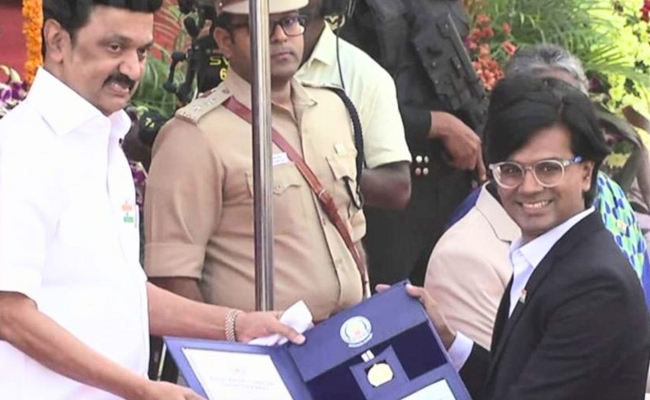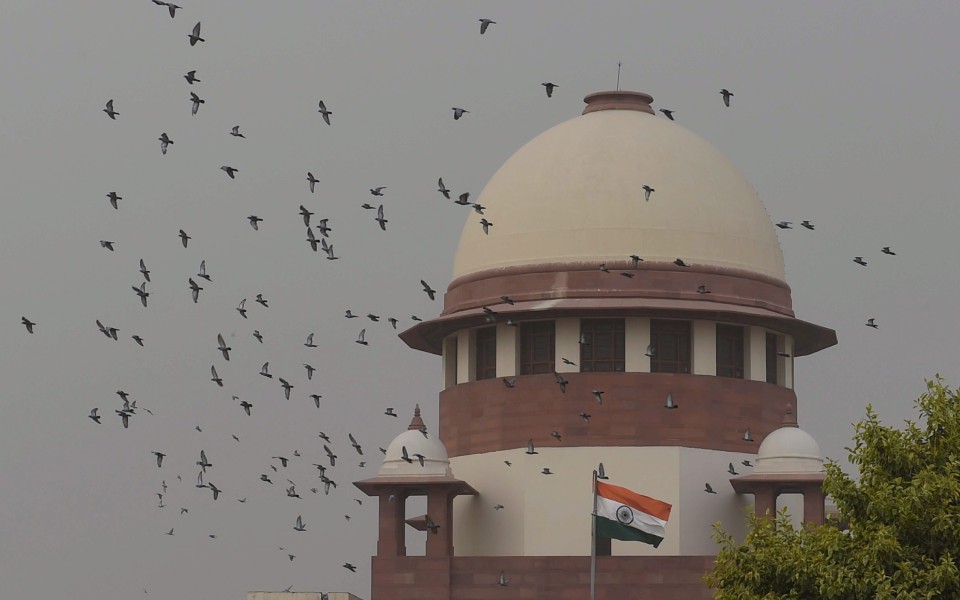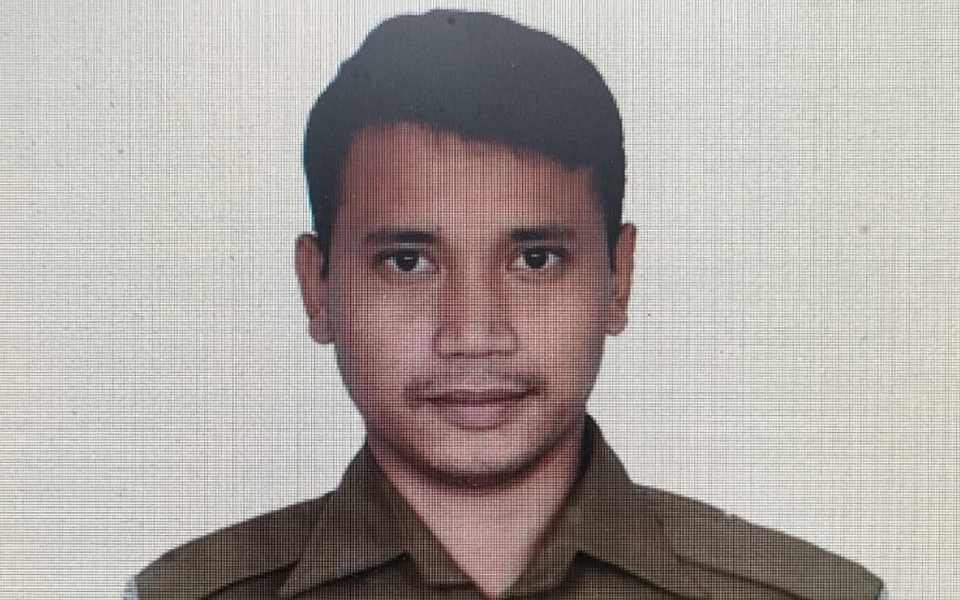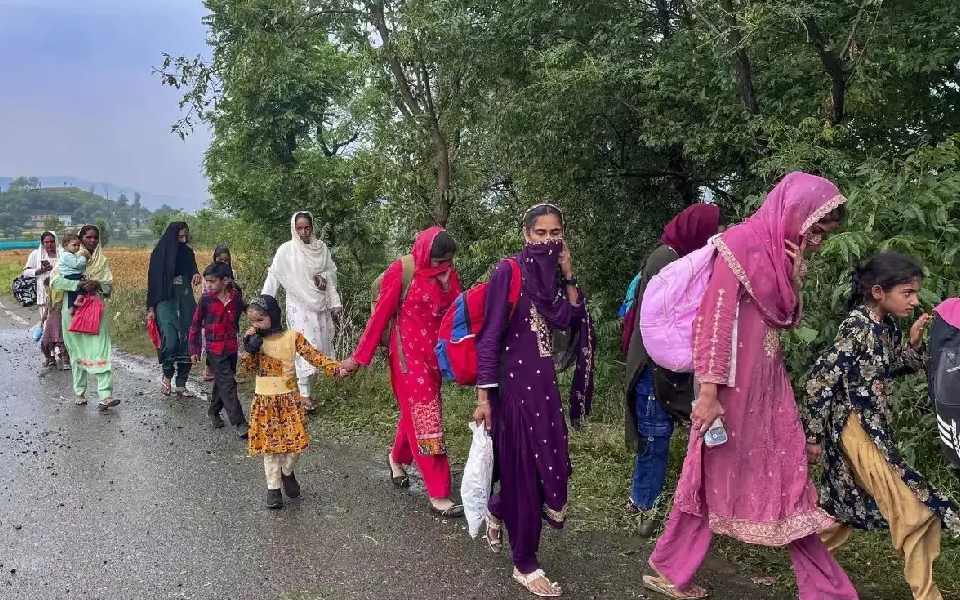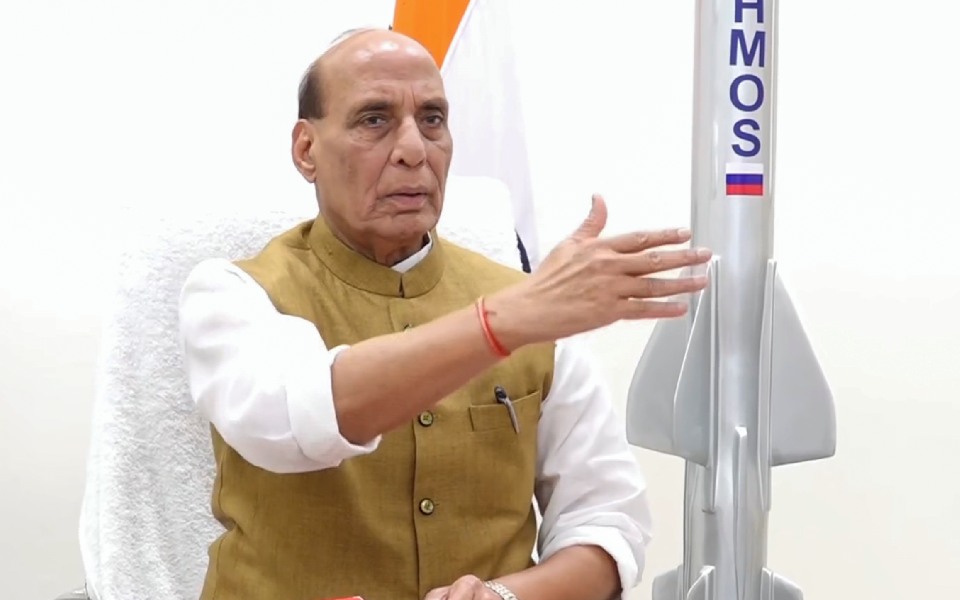Chennai (PTI): Chief Minister M K Stalin on Friday presented the state government's award for promotion of communal harmony to fact-checker Mohammed Zubair "in recognition of his contribution in prevention of violence" by debunking claims in social media that migrant workers were under attack in Tamil Nadu.
Co-founder of AltNews, Zubair was presented the award by Stalin at the 75th Republic Day celebrations here. The government said in March 2023, claims were made in social media that "migrant workers were being attacked in Tamil Nadu."
After verifying the authenticity of the video clips that made such claims, Zubair made it amply clear in AltNews that such claims were false and such attacks did not take place in Tamil Nadu at all.
"Thus, he stopped the spread of rumours against Tamil Nadu and acted to prevent violence caused by caste, religion, race and language," in the state, the government said in the citation.
"In appreciation of the services rendered by him in maintenance of communal harmony, Thiru Mohammed Zubair is presented with the Kottai Ameer Communal Harmony Award for the year 2024."
Further, the government said that he has been "rendering various services to promote communal harmony."
The Tamil Nadu government instituted the Kottai Ameer Communal Harmony Award in the year 2000 for nurturing communal harmony.
It is being given to a person belonging to the state in recognition of outstanding services in building harmony. The award carries a medal, a cash component of Rs 25,000 and a certificate honouring the services. The government said Zubair is a resident of Denkanikottai taluka of Krishnagiri district.
Let the Truth be known. If you read VB and like VB, please be a VB Supporter and Help us deliver the Truth to one and all.
New Delhi, May 11 (PTI): The Supreme Court has dismissed a plea seeking a direction to the Tamil Nadu, Kerala and the West Bengal governments to implement the National Education Policy, including its three-language formula.
A bench of Justice JB Pardiwala and Justice R Mahadevan said the top court could not issue such directions to state governments.
"The Supreme Court, through Article 32 of the Constitution, can issue directives to ensure that the fundamental rights of citizens are protected. It cannot directly compel a state to adopt a policy like the National Education Policy, 2020," the bench said in an order passed on Friday.
"The court may, however, intervene if a state's action or inaction related to the National Education Policy violates any fundamental rights or any other legal rights. We do not propose to examine this issue in this writ petition filed under Article 32 of the Constitution," it added.
The petitioner has nothing to do with the cause he proposes to espouse, the top court further said.
"Although he may be from the state of Tamil Nadu, yet, on his own admission, he is now residing in New Delhi. The main issue may be examined by this court in an appropriate proceeding but at least not in this particular petition," the bench said.
The apex court was hearing a plea filed by advocate GS Mani seeking directions to implement the National Education Policy, 2020.

